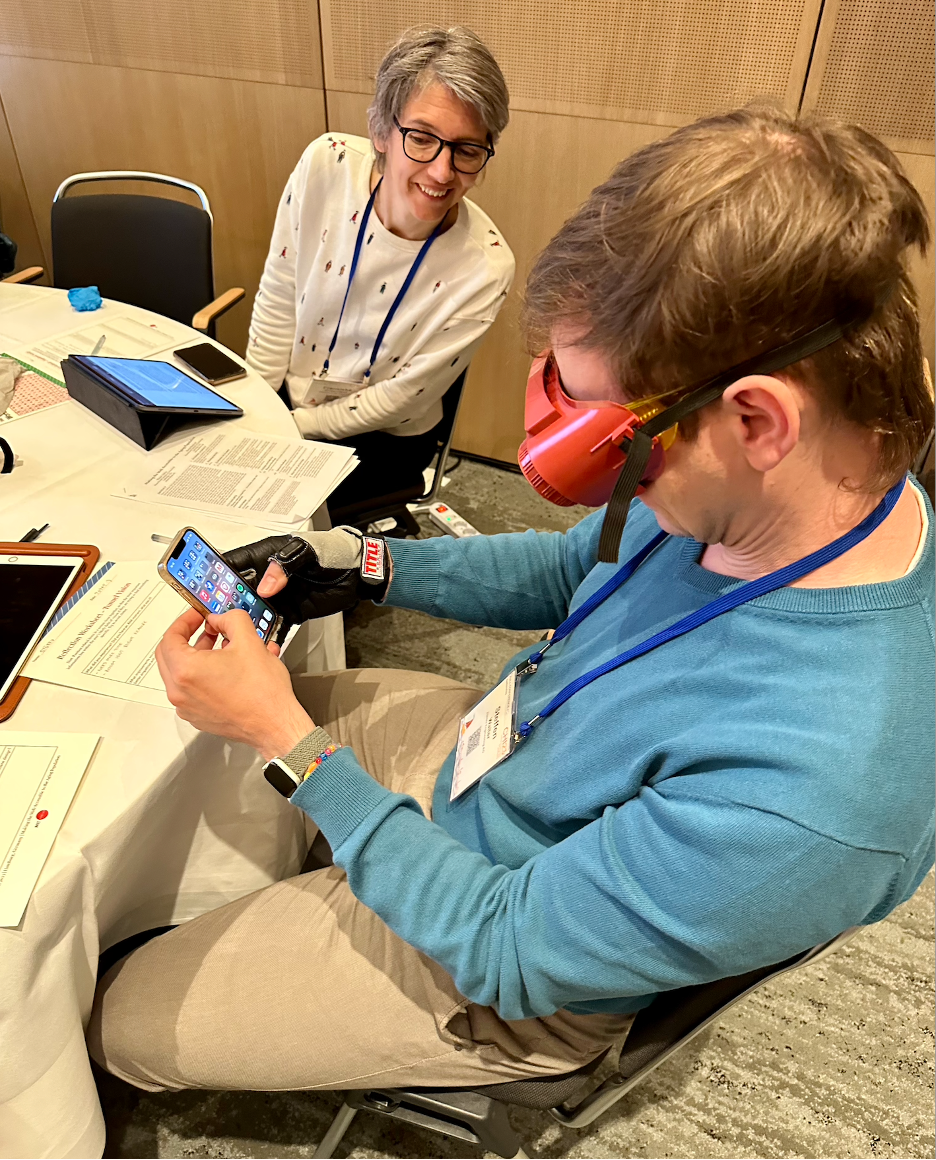Manasi Vaidya Uses AGNES with Web Developers at Conference in Germany
by Adam Felts
Manasi Vaidya, a student in MIT’s Integrated Design and Management (IDM) program and a researcher at the MIT AgeLab, traveled to Hamburg, Germany, to discuss web accessibility for older adults to an audience of developers, user researchers, engineers, and computer scientists.
The Association for Computing Machinery (ACM) hosts a series of conferences on a variety of research topics. On April 25th, the Association held a conference on human-computer interaction (HCI) in Hamburg, during which Ms. Vaidya conducted her course.
Using components of the AgeLab’s Age Gain Now Empathy System (AGNES), Ms. Vaidya led a hands-on course intended to illuminate for participnats coming from various fields the accessibility challenges that older users might face.
As background, she explained that much of the global population is rapidly aging, and that one of the most prominent groups of users of the internet are older adults. Yet the web is not designed with their capabilities in mind, and principles of accessibility are not always applied with older adults as an intended group.
Ms. Vaidya then introduced her participants to components of AGNES, specifically the suit’s vision impairment goggles, latex gloves, and weighted gloves, and outlined their potential applications for exploring accessibility.
Broken into groups, the class chose subjects and projects that were of interest to them to investigate with AGNES. One group examined how AGNES might make it more difficult to brainstorm using post-It notes—a step removed from web accessibility, but an essential tool for a designer. Another looked at how privacy notices like cookie preference pop-up windows from websites be difficult to read for those with impaired vision, and a third group investigated whether website navigation members are designed for older web users.
In addition to various members of the design team, Ms. Vaidya noted the value of being able to work with “back-end” professionals like coders and computer scientists on aging-empathy and accessibility activities as well, as these professions play a key role in web design decision-making and implementation.

